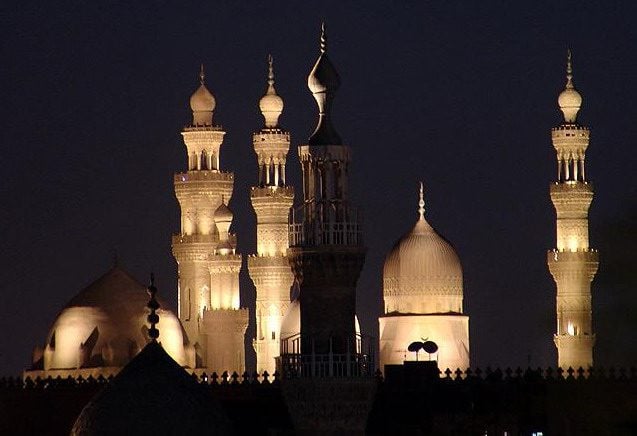
For most Muslim scholars (certainly in the Sunni world), the “gate of ijtihad” closed somewhere around the beginning of the 900s AD.
What does this mean? Ijtihad — from the same Arabic triliteral root as jihad — means, roughly, “independent interpretation.” So what is meant is that the fundamental questions of Islamic jurisprudence had been settled by the dawning of the tenth century.
I’ve never approved of this. (As if my opinion about such things, I being a non-Muslim, matters or should matter!)
I can easily understand believers refusing to challenge the Prophet Muhammad. In Muslim belief, he came with divine authority. To cast away his words would thus be, to a substantial extent, to sever the Islamic world’s connection to God.
But the legal thinkers of the first three Islamic centuries after him (that is, up to about 900 AD) were simply mortal men. They received, and claimed to receive, no revelation. They may have been — I think they were — overwhelmingly good, sincere, faithful, intelligent men. Even brilliant men. But I’m not sure why their opinions should be privileged, sacrosanct, above the views of good, sincere, faithful, and brilliant Muslim scholars today.
Furthermore, essentially freezing Islamic law in the 900s AD makes it difficult for the Islamic community, the umma, to adjust to changing cultural and historical realities. Not impossible, of course. Whatever the theory may be, it’s unavoidable in practice for judges and religious thinkers to reason independently. They cannot avoid it. But a principle declaring that they shouldn’t do so can bind them in potentially unfortunate ways.
On the other hand . . .
Any religious faith, any culture, that wants to maintain its identity must avoid cutting itself off altogether from the source of that identity. The United States Supreme Court and other federal judges, in my opinion, have sometimes gone too far beyond the “original intent” of the framers of the Constitution; I consider it a serious problem when judges feel themselves authorized to (as the catchphrase goes) “legislate from the bench.”
So, in legal matters as in very many others, there’s a tension between faithfulness to one’s history and openness to the future. And that tension should be maintained. It can be minimized or eliminated, of course, either by simple and slavish imitation of the past or by cutting oneself adrift from that past and floating away, untethered. In virtually all situations, both extremes are wrong and dangerous.
Nevertheless, it seems to me — again, speaking as an outsider who has no rights in the matter, but also as someone who cares a great deal, and who wishes the best for his friends and for a great and rich civilization that he admires very much — that the time is long overdue for Muslims to examine some common Islamic ideas and practices to see whether they’re really consistent with the fundamental principles of the Qur’an.
I frankly think that it’s always time, in every generation, to perform such an examination. And not only for Muslims. To borrow a Latin phrase from yet another religious tradition: The great Swiss Protestant theologian Karl Barth declared, in 1947, that Ecclesia semper reformanda est. “The Christian church is always reforming itself.”
Semper reformanda. It’s a good principle for every culture, for every organization, and for every individual. Constantly checking to see whether or not we’re still on course.
So, with that lengthy prologue in mind, I recall a little item about a speech given by the president of Egypt back in 2015:
http://www.firstthings.com/blogs/firstthoughts/2015/01/president-sisis-speech
I understand the potential dangers here. Who knows what forces might be unleashed? It was similar concerns that led the Founding Fathers of the United States to make amending the Constitution difficult, to make it hard to call a new Constitutional Convention. But they didn’t make it impossible. Revisiting fundamental cultural, religious, and legal principles shouldn’t be done lightly, on a whim. It requires care. But, for a living body of thought, a living culture, it’s a necessity.
And I think it’s an urgent necessity for Muslims today.










